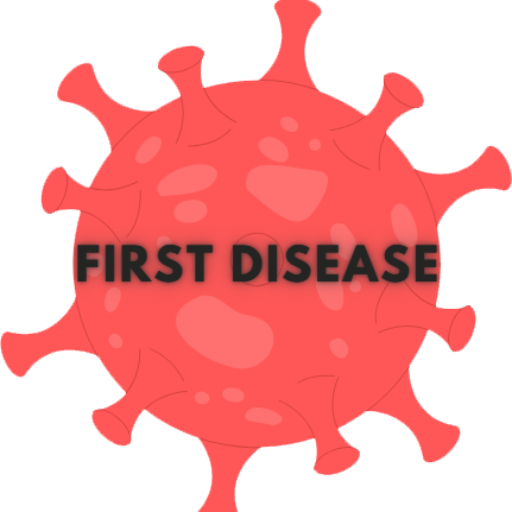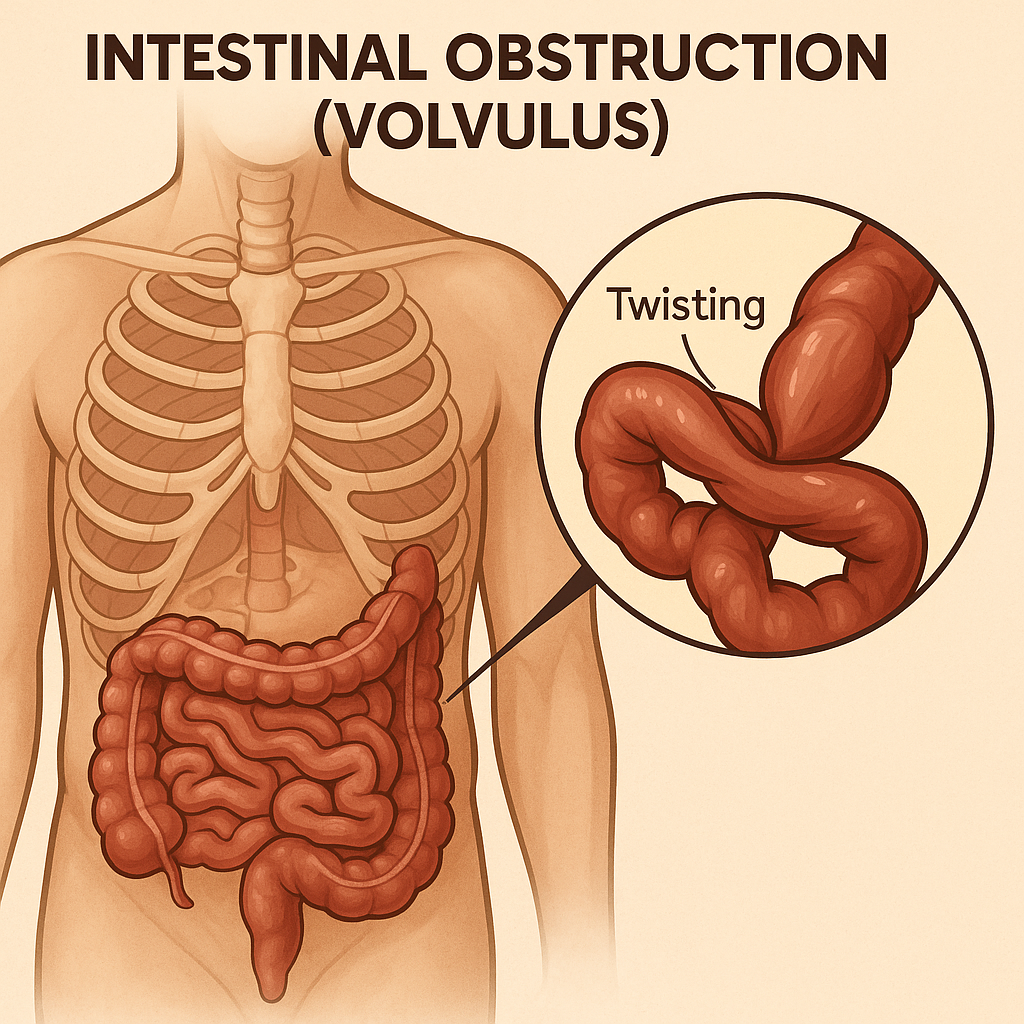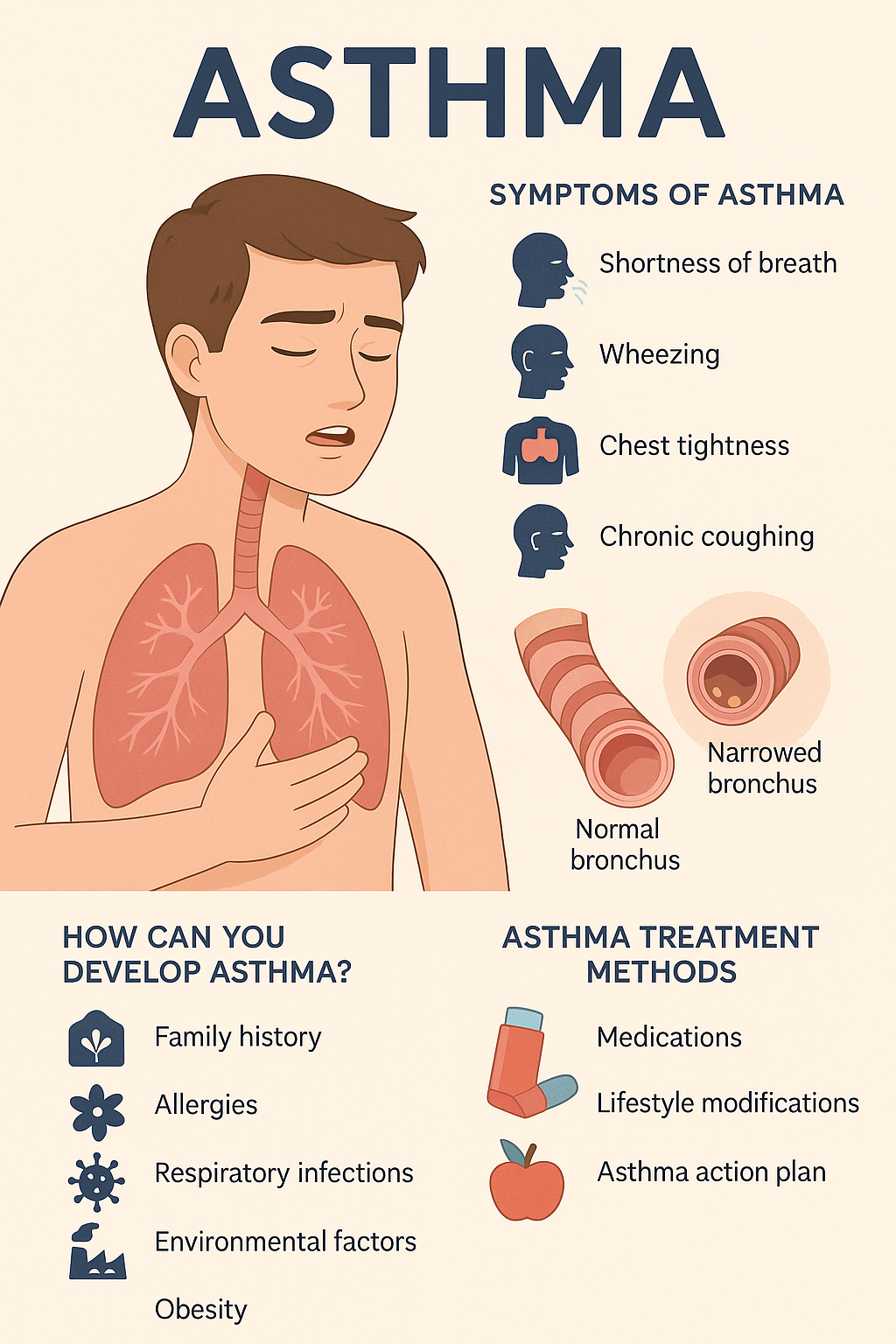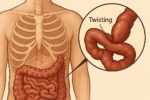Intestinal Obstruction (Volvulus): A Comprehensive Overview
What is Intestinal Obstruction ?
Intestinal obstruction , also known as volvulus when it involves twisting, refers to a blockage that prevents the normal flow of contents through the digestive tract. It can affect either the small intestine or the large intestine . The blockage may be partial or complete and can lead to serious complications if not treated promptly, including tissue death, infection, and even life-threatening situations.
In cases of volvulus, the intestine twists around itself and the mesentery that supplies its blood. This not only blocks the passage of intestinal contents but can also cut off blood supply , leading to ischemia and necrosis of the affected bowel segment.
Symptoms of Intestinal Obstruction
The signs and symptoms of intestinal obstruction may vary depending on the location and severity of the blockage. Common symptoms include:
-
Severe abdominal pain and cramping
-
Swelling (distention) of the abdomen
-
Nausea and vomiting
-
Constipation or inability to pass gas
-
Diarrhea (especially if the obstruction is partial)
-
Rapid heartbeat
-
Fever (if an infection or tissue death occurs)
Pain associated with volvulus is often sudden, intense, and may come and go initially before becoming constant.
Which Age Groups Are Affected?
Intestinal obstruction can affect people of all ages, but certain forms are more common in specific groups:
-
Newborns and infants: Conditions like congenital intestinal malrotation and meconium ileus (common in cystic fibrosis) can cause volvulus or obstruction.
-
Children: Intussusception (where a part of the intestine slides into an adjacent part) is a frequent cause of obstruction in young children.
-
Adults: In adults, causes often include adhesions from previous surgeries, hernias, tumors, Crohn’s disease, or volvulus.
-
Elderly: The risk increases with age due to comorbidities like diverticulitis, cancer, and decreased intestinal motility.
Causes and Risk Factors
Several factors can cause or increase the risk of intestinal obstruction:
-
Previous abdominal or pelvic surgery (causing scar tissue or adhesions)
-
Hernias
-
Tumors (inside or pressing on the intestines)
-
Inflammatory bowel diseases (e.g., Crohn’s disease)
-
Intestinal malrotation (in newborns)
-
Severe constipation
-
Foreign bodies (swallowed objects)
-
Gallstones or impacted stool
Diagnosis
Diagnosis typically involves:
-
Physical examination: Noting tenderness, distension, or abnormal bowel sounds.
-
Imaging tests: Such as abdominal X-rays, CT scans, or ultrasound, to visualize the blockage.
-
Blood tests: To check for signs of infection, dehydration, or loss of blood supply to the intestines.
Early diagnosis is critical to prevent complications like bowel perforation or peritonitis.

Treatment of Intestinal Obstruction
Treatment depends on the cause, location, and severity of the obstruction:
1. Conservative Management (for partial obstructions):
-
Hospital admission for monitoring.
-
IV fluids to prevent dehydration.
-
Nasogastric tube insertion to relieve pressure in the stomach and intestines.
-
Bowel rest (no food or drink by mouth).
2. Surgical Treatment (for complete obstructions or volvulus):
-
Emergency surgery to untwist the volvulus or remove the obstructed portion of the intestine.
-
In cases of tissue death, resection of the dead bowel is necessary, followed by reattachment of healthy sections.
-
Sometimes, a temporary or permanent colostomy or ileostomy may be required.
3. Management of Underlying Causes:
-
Removal of tumors.
-
Repair of hernias.
-
Management of chronic conditions like Crohn’s disease.
Prognosis and Recovery
The prognosis largely depends on the speed of diagnosis and treatment. Without prompt intervention, intestinal obstruction can lead to serious and fatal complications. When treated appropriately, especially before tissue damage occurs, recovery can be complete.
Post-treatment, patients may need dietary adjustments, regular follow-up, and, if necessary, physical therapy to regain strength after surgery.
Conclusion
Intestinal obstruction, particularly volvulus, is a medical emergency that requires swift recognition and intervention. It affects individuals across all age groups and presents with hallmark symptoms like abdominal pain, distention, and vomiting. Early diagnosis and appropriate treatment are key to preventing severe complications and ensuring recovery. Raising awareness of its symptoms and risk factors can save lives and improve outcomes for those affected.
Don’t forget to check our page for similar diseases and treatments.








